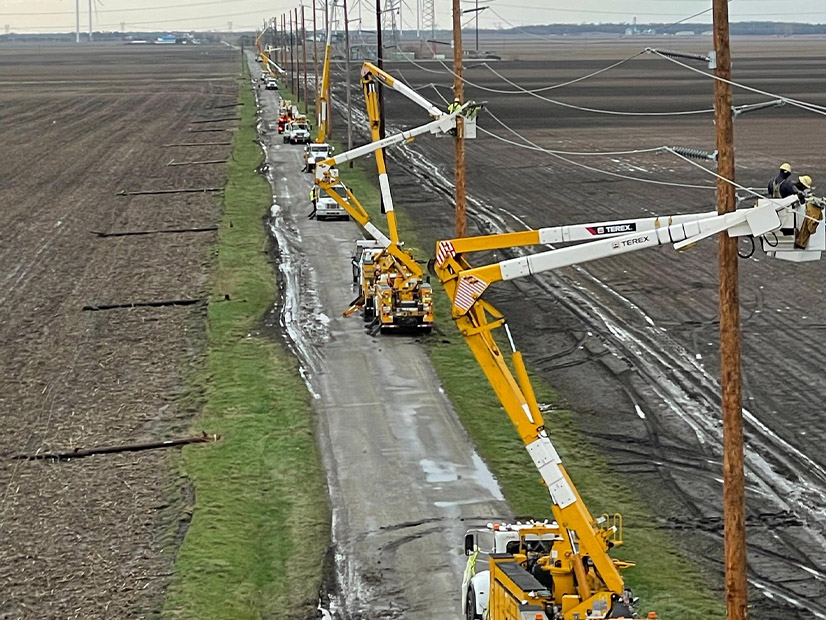Indiana has become the latest state to give incumbent utilities a right of first refusal to develop regional transmission projects.
HB 1420 acquired Gov. Eric Holcomb’s signature on Monday, along with 67 other bills. Indiana already maintained rights of first refusal for incumbent utilities to build, own and operate new transmission lines for reliability purposes within their service territories. The new law extends utilities’ rights to projects approved through an RTO transmission planning process that can cross multiple states, preventing competitive developers from bidding on segments of them.
The bill advanced 55-39 from the House of Representatives last month, with opposition coming from both sides of the aisle.
The final bill included amendments that require utilities to use competitive bidding when they subcontract out construction on portions of their projects and notify their RTO within 90 days of project approval if they intend to pass on a project, so they can initiate their request for proposals process.
American Electric Power’s Indiana-Michigan Power is a member of PJM. All other utilities in the state — AES Indiana, CenterPoint Energy, Duke Energy Indiana and Northern Indiana Public Service Co. — are members of MISO.
MISO automatically assigns approved transmission projects, or portions of them, to incumbent utilities in states with ROFR laws in place.
It is unclear what PJM’s policy is regarding state ROFR laws; the RTO had not responded to a request for more information as of press time.
Indiana Rep. Ed Soliday (R), the bill’s author, has said that the objective of the law is to ultimately lower rates for customers and secure better cost controls for incumbent utilities, which are best positioned to own and operate transmission in their territories.
Danielle McGrath, president of the Indiana Energy Association — a trade group representing utilities — has also said that incumbent utilities are best situated to manage restoration after grid-disrupting events.
Opponents of the law have argued that it will stymie competition and increase rates while holding back innovation. The Electricity Transmission Competition Coalition (ETCC) said it was disappointed in the bill’s passage and had called on Holcomb to veto the bill.
In a statement, Paul Cicio, chair of ETCC, said “the decision by Gov. Holcomb to sign this anticompetitive, anti-consumer and inflationary legislation is regrettable. HB 1420 will hurt families and businesses with higher monthly utility bills.”
The ETCC said ROFR bills give incumbent utilities “no reason to reduce or even contain costs and will pass higher transmission costs onto consumers.” It said that according to MISO’s zonal transmission rates, transmission costs in Indiana have climbed by an average 63% over the past five years. It did not address transmission rates in PJM.
“HB 1420 will see those rate hikes accelerate for decades to come. Hoosiers have had to deal with the fourth highest increase in electricity prices in the country,” the coalition said, citing pricing data from the U.S. Energy Information Administration and a 2019 Brattle Group study that concluded transmission competition saves consumers money. “HB 1420 will make a bad problem worse. Electricity transmission competition has been shown to lower costs by as much as 40%. Indiana needs an upgraded grid, and Hoosiers deserve affordable electricity, and electricity transmission competition is the only way to deliver both.”
Indiana’s law takes effect weeks after the Iowa Supreme Court overturned the state’s ROFR, which could potentially shake up the construction and ownership of a couple billion dollars’ worth of MISO’s approved long-range transmission project portfolio. (See Iowa Regulators Ponder MISO Tx Projects After ROFR Ruling.) Multiple MISO state legislatures have considered ROFR bills since the beginning of the year as MISO mounts a second long-term transmission portfolio that could contain as much as $30 billion worth of new projects. (See MISO States Ramp Up ROFR Legislation.)


